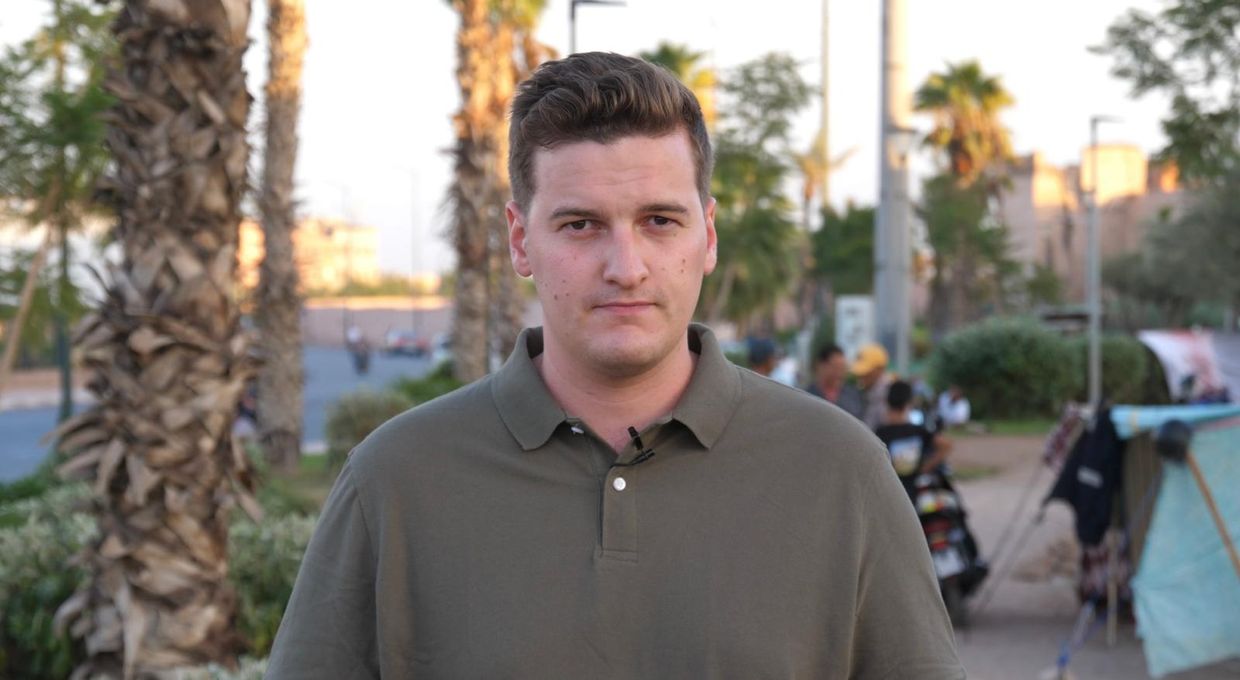As French President Emmanuel Macron hosts another Ukraine-centric summit in Paris on March 27, the main question remains open — can Europe, and France as one of its leaders, keep embattled Kyiv afloat when the U.S. walks out?
Addressing the nation on March 5, French President Emmanuel Macron said that France, and Europe, need to prepare to face Russian threats without support from the U.S.
"Faced with this world of danger, remaining a spectator would be madness," the French president said.
On March 26, Macron announced a new military aid package for Ukraine worth 2 billion euros ($2.1 billion).
"We must continue to provide immediate support to Ukraine — it is necessary in order to keep up the resistance," Macron said, standing next to President Volodymyr Zelensky at the Elysee Palace.
The package included anti-tank missiles, air defense systems, Mirage fighter jet missiles, armored vehicles, ammunition, and other aid, Macron said.
The French leader has toiled to place France at the tip of the spear in the hopes of leading Europe's defense. Yet, as it stands now, Macron's flurry of diplomatic efforts is yet to show results, with the continent unable to muster up a concrete plan on rearmament, peacekeepers in Ukraine, and a unified stance toward the increasingly aggressive U.S.
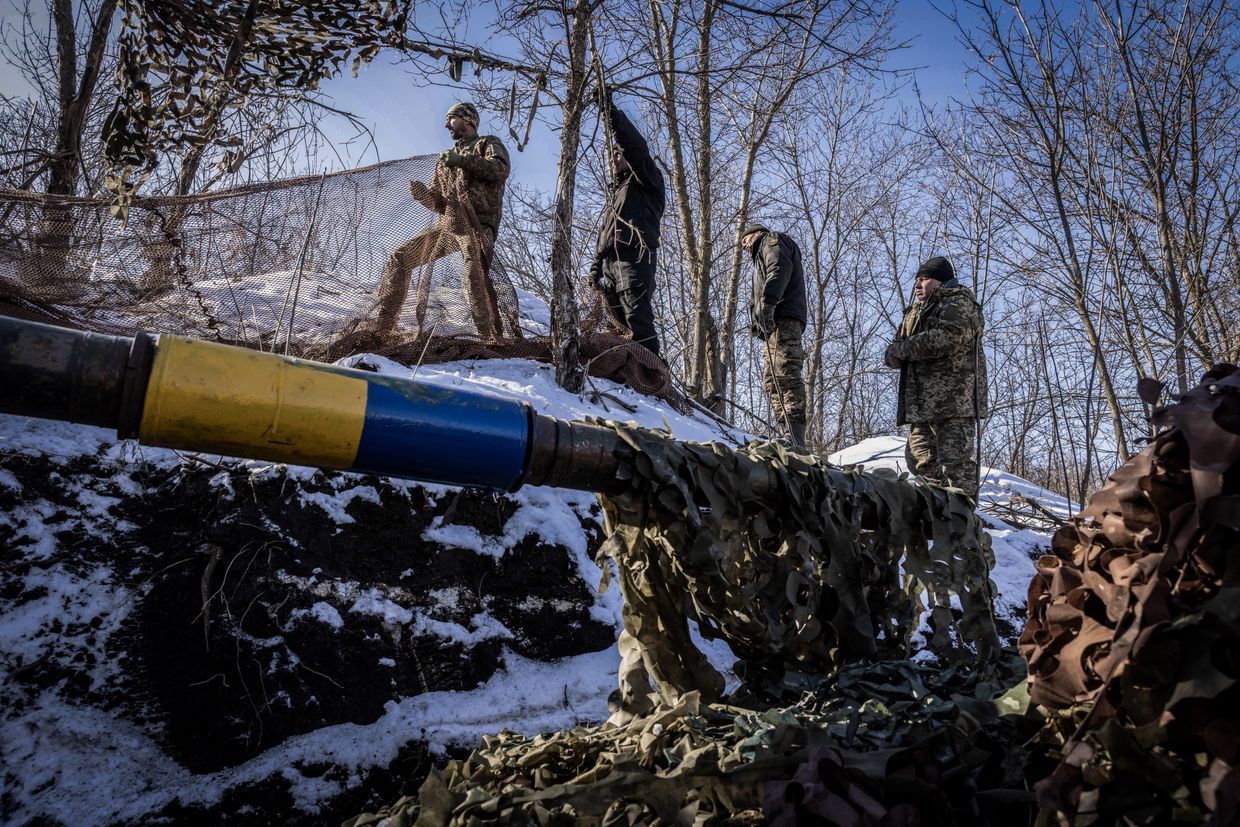
Macron's push for independent Europe
Over the past weeks, President Macron has shown an increasing desire to solidify the support for Ukraine, and rebuild European defenses, still heavily reliant on unpredictable Washington.
France has shown "awareness that it is necessary to reach out to non EU partners in order to create a sort of critical mass of countries that could be interested in developing a common approach to the defense of Europe," Antonio Missiroli, former NATO Assistant Secretary General for Emerging Security Challenges, told the Kyiv Independent.
Crucially, France has also changed its position on working with the United Kingdom, Europe's only other nuclear power.
"This is a Franco-British initiative which aims to provide security guarantees to Ukraine when a peace deal is agreed, through the deployment of troops to Ukraine," officials from the Elysee Palace told reporters.
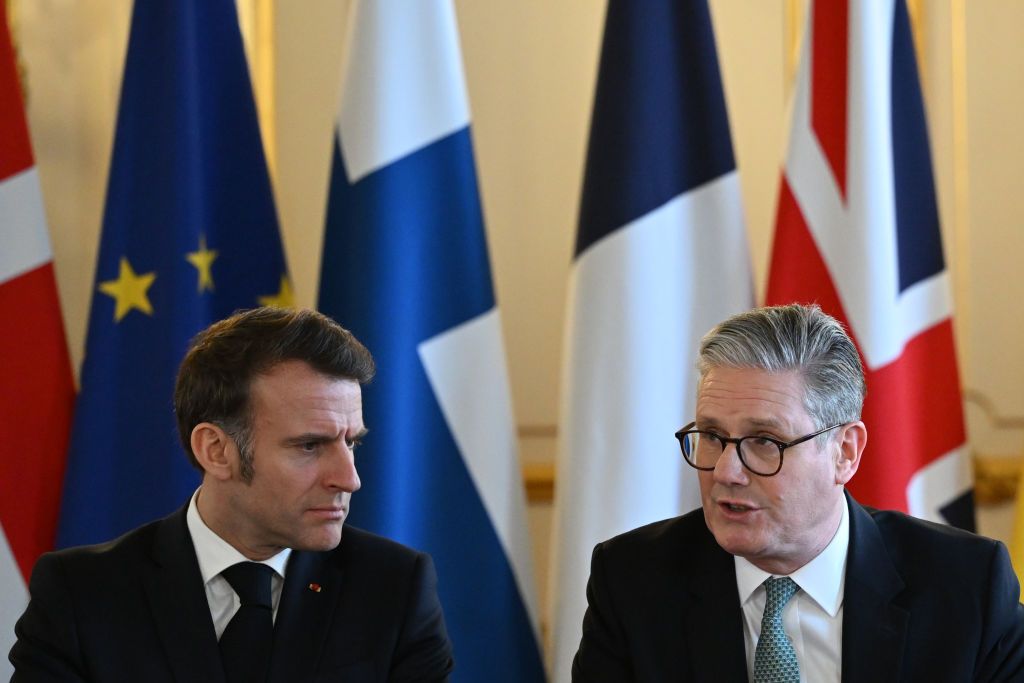
The officials were eager to highlight that France's diplomatic efforts appear to have paid off, with 31 countries expected to attend the "coalition of the willing" meeting in Paris.
While it may be preparing for the U.S. to abandon its European allies, France is also working in parallel to avoid it, relying heavily on the personal relationship between President Macron and U.S. President Donald Trump.
"I believe that Emmanuel agrees with me on many of the important issues," the U.S. president said during Macron's visit to Washington in late February, seen by many as a successful diplomatic overture by the French leader.
"There is an acute awareness around President Macron that it is important to try and keep some line of communication with the Trump administration open in order to avoid shock events and developments," Missiroli said.
While diplomatic efforts seem to be in full swing, whether or not they will lead to concrete action remains to be seen.
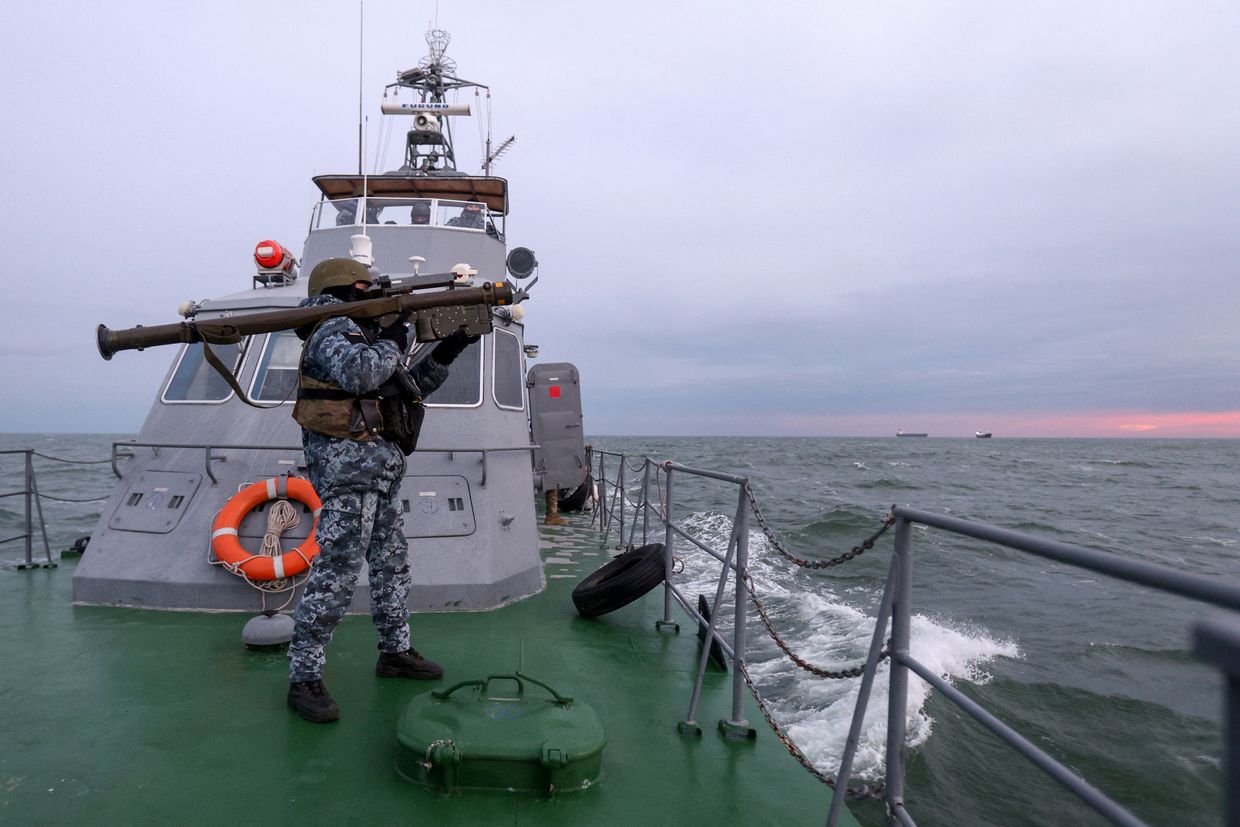
Unrealistic desires
Despite the apparent warmth and endless handshakes between Trump and Macron, the U.S. position remains that Europe, not the United States, should be the guarantor of lasting peace in Ukraine.
The meeting in Paris will focus primarily on nailing down those European security guarantees for Ukraine, should an end to Russia's full-scale invasion be negotiated without Europe.
This previously included a potential commitment to send a so-called reassurance force to Ukraine to deter any further Russian aggression.
"If Europeans had to deploy a serious reassurance force to Ukraine, they would have to deploy all their best forces, and then they would remain undefended at home," Missiroli said.
Despite the public commitment from Macron and U.K. Prime Minister Keir Starmer to send troops to Ukraine in case of a firm ceasefire, the actual deployment of troops is seen as increasingly unlikely.
Missiroli added that most European militaries have planned, trained, and prepared themselves to operate within a NATO framework, which assumes American support.
"It would be extremely difficult for Europeans simply to transpose these capabilities outside of NATO without an American backstop, some sort of logistical communications intelligence support from the United States. So if the question is, would Europeans be able to fill in for American disengagement overnight, the answer will probably be no."
Even with American logistical support, troop numbers in France, the U.K., Germany, and other European powers have dwindled significantly in recent years, putting into question the feasibility of a peacekeeping mission.
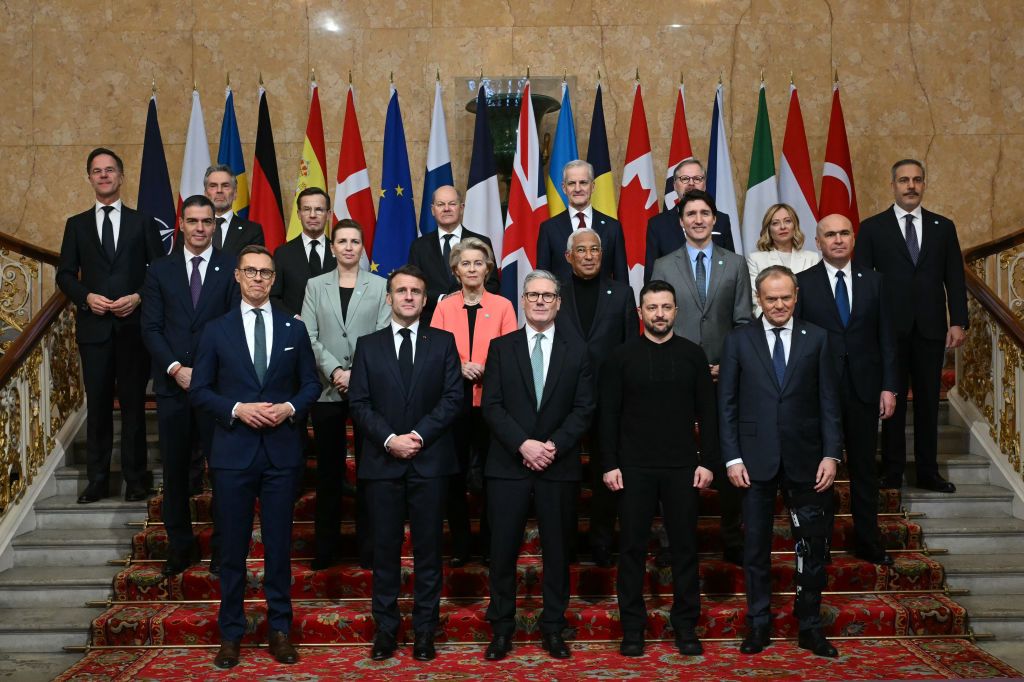
"In order to put a force of 10,000 British soldiers out there, you've got to have 30,000 in the pipeline, either recovering or training. And it's a long-term commitment. This is not a six-month tour and then home for tea and medals. This is potentially years. So I think there are real question marks about that," General Sir Richard Shirreff, former deputy supreme allied commander Europe, told the Kyiv Independent.
Beyond troop numbers, Europe may also struggle to reduce its reliance on American weaponry, at the very least, doing so may take years.
"European systems sometimes compete with American ones and sometimes are slightly less advanced, but they are still highly relevant technologies," Olivier Schmitt, head of research at the Institute for Military Operations at the Royal Danish Defense College, told the Kyiv Independent.
"Europe has all the technological bricks and knowledge required, but the issue is mostly spending and production. Some capability gaps (such as in space-based assets) could take as much as ten years to fill in the U.S. absence."

Going nuclear
Macron has also invited fellow European leaders to explore if and how France's nuclear arsenal could be deployed to deter Russian aggression against the rest of Europe. He also announced that the country's largest air base would be modernized so it can house nuclear weapons.
Poland and Germany have both signaled a desire to engage in discussions about France's nuclear umbrella for fear that American nuclear guarantees to Europe may soon be withdrawn.
"Even combining British and French nuclear capacity, I don't think is enough to deter," Estonia's former President Toomas Hendrik Ilves told the Kyiv Independent. "What would be important is to have those weapons in countries like Poland so the delivery becomes much more realistic and feasible, and since no one wants to use them, it would have a far greater deterrent effect."
The U.K. and France, the only two European nuclear powers, have 515 nuclear warheads, and only France has the ability to deploy its nuclear weapons both by sea and air.
In comparison, the United States has 1,750 warheads, and Russia boasts 1,570. Both countries are able to deploy these weapons by land, sea, or air.
EU can do it, too
In the meantime, Macron has played a role in revving up the European Union's famously sluggish institutions to face the task at hand.
"France has moved very swiftly in order to encourage the EU institutions to do as much as possible to create additional incentives for member states to invest in defense," Missiroli said.
"Some of the initiatives that have been presented recently by Ursula von der Leyen on behalf of the Commission go in that direction."
Those initiatives include a 150 billion euro ($161 billion) fund from which member states can borrow to spend on collective European defense and a loosening of EU debt rules to allow member states to borrow more to spend on military production.
While France is unlikely to use these mechanisms itself, European officials told the Kyiv Independent that at least 20 EU countries almost certainly will.
A fundamental challenge for France, and other European countries, will be finding the money to pay for this ramping up of European defense.
European officials told the Kyiv Independent that one of the reasons why France will not use the EU schemes to borrow more money, is that the government is worried about the country's already huge debt burden and Macron's domestic struggles.
The French president has said the money cannot come from raising taxes.
"Difficult decisions will have to be taken by what is now a very weak (French) government, a minority government, tolerated by some oppositions in order to shift resources from other areas of public spending onto defense," Missiroli said.
To deliver on a flurry of promises made to Ukraine and other European states and revolutionize European defense before the country's 2027 presidential election, Macron would need to find more money and more will to do so.




